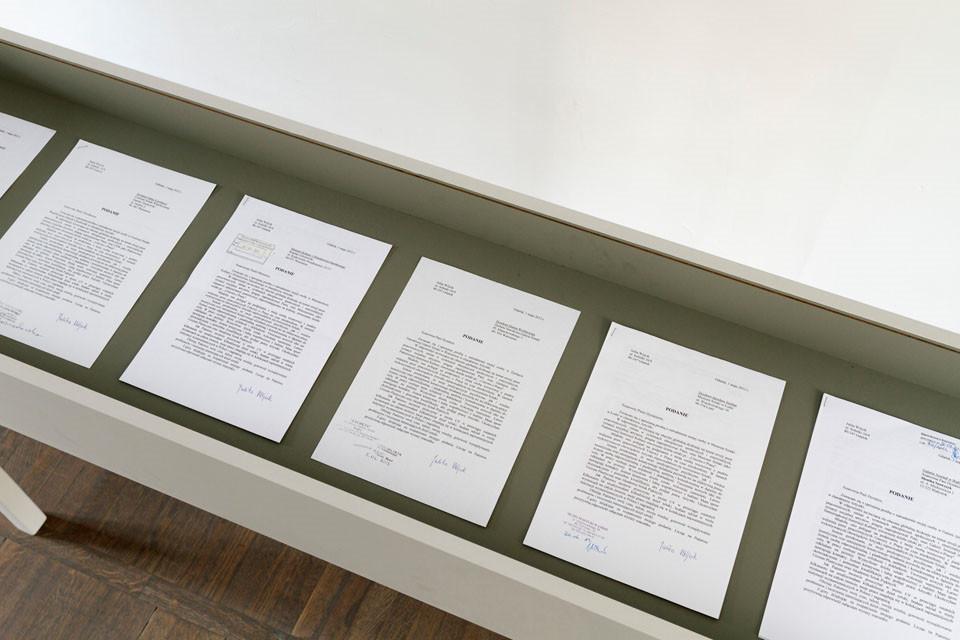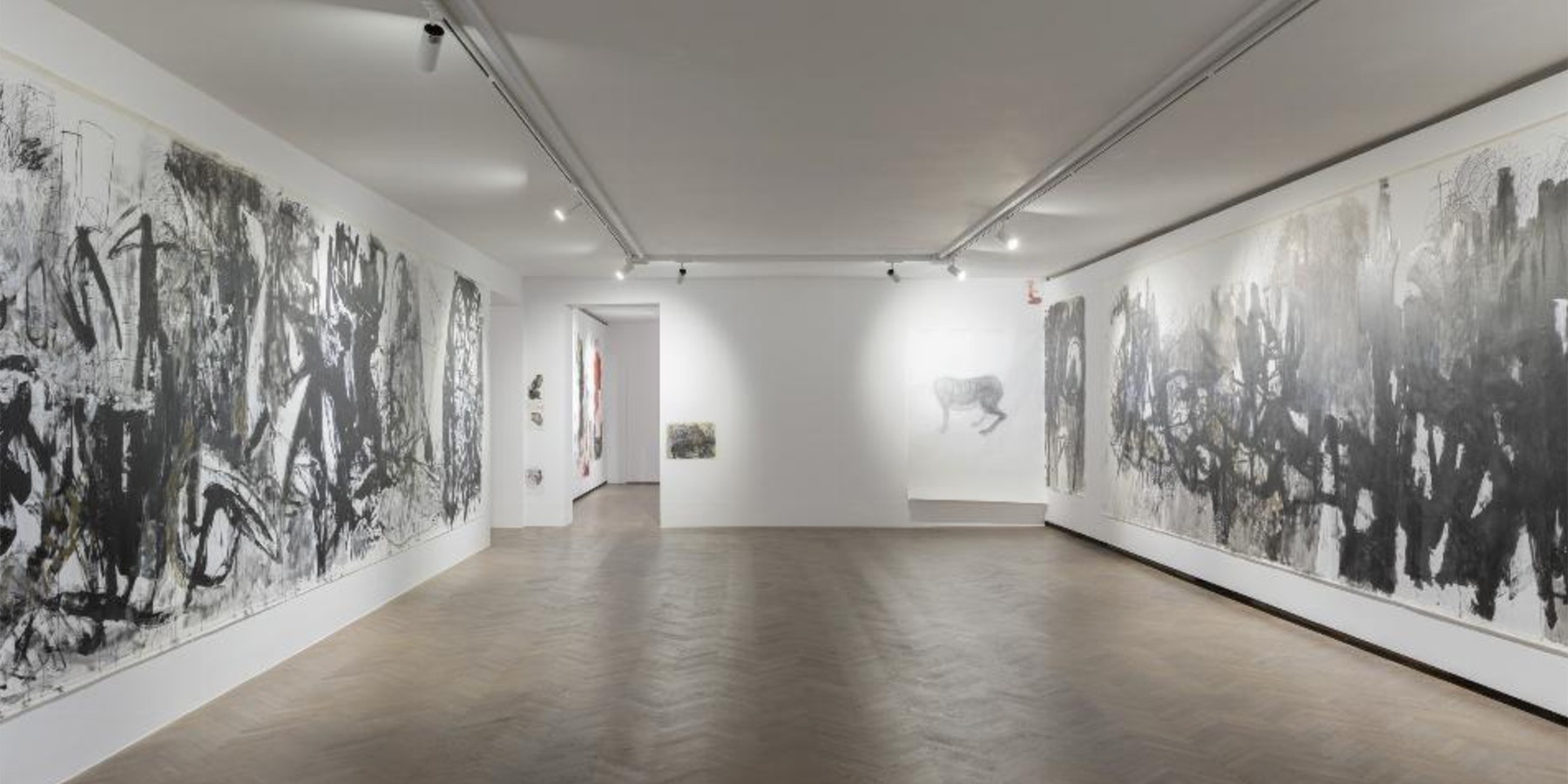Julita Wójcik
Employment Contract
Julita Wójcik
Employment Contract, 2012, installation, print on paper, 20 sheets in A4 format
Collection II of the Arsenal Gallery in Białystok. Work purchased by the Podlaskie Association for the Promotion of Fine Arts

On 1st May 2012, Julita Wójcik applied for employment as an artist by sending out seven letters addressed to the directors of the leading Polish institutions concerned with ultra-modern art, including the Ujazdowski Castle Centre for Contemporary Art, Zachęta – National Gallery of Art (both in Warsaw), and the Arsenal Gallery in Białystok. Her flawlessly structured covering letter was accompanied by a CV and a description of her oeuvre. She applied for employment on the basis of an indefinite-duration contract, i.e. one that would grant her full social benefits and health insurance. Her work responsibilities were to involve the creation of art. Not only did she not obtain a job; she did not receive an answer to any of the applications she had sent.
The gesture of sending out job applications resulted from Wójcik’s reflection concerning the social condition of an artist in Poland. On a symbolic date – the International Workers’ Day – she made a resounding enquiry into the correlations between creating art and working; between a non-employed artist and a contractual employee who enjoys the privileges resulting from the terms of contract; finally, the correlations between working, creating art and getting paid. Wójcik’s action was as rational as it was absurd. Writing a job application is one of the first steps taken in the process of seeking employment. Artists, however, are not employed on the basis of a contract; and if they happen to be, they work as service providers, reduced to arranging exhibitions, producing graphic designs or documenting the work of other creators. The effect of their work is not a fruit of independent artistic explorations, be they intellectual or formal in nature.
In the general perception, creating art is not working; an artist does not work. The job of “an artist” is absent from the governmental record of professions; neither does it exist as a work post. Artists provide contract work; such contracts do not guarantee social benefits or health insurance. The only resulting duty is to pay tax owed for the usually meagre remuneration. Julita Wójcik’s Employment Contract refers to a creator’s uncertain status in the purely human dimension (as an old-age pension or compensation for medical expenses) as much as in the context of legal regulations, because it is the latter that place an artist outside the Polish system of insurances and social benefits.
Izabela Kopania
translated from Polish by Klaudyna Michałowicz

PLAN YOUR VISIT
Opening times:
Thuesday – Sunday
10:00-18:00
Last admission
to exhibition is at:
17.30